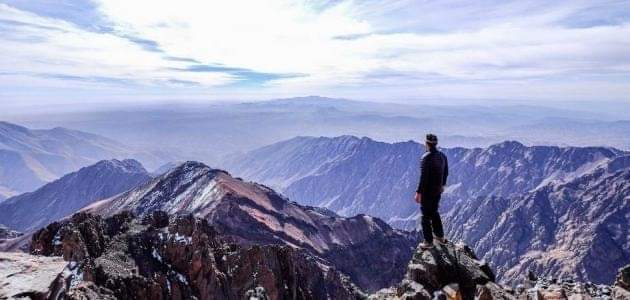
Experience the Marrakech International Film Festival, where global cinema meets Morocco’s vibrant culture each December. This unique event invites travelers to explore the city's dynamic blend of tradition and modernity while engaging with world-class films and industry events.
Book Screening Tickets Early
Popular film screenings sell out quickly, so secure your tickets in advance through the festival’s official website or authorized vendors.
Wear Comfortable Footwear
Marrakech’s streets can be cobblestoned and uneven; comfortable shoes will keep you steady during city walks between venues.
Stay Hydrated
December is mild but dry—carry a water bottle when moving between indoor and outdoor venues, especially while exploring the medina.
Learn Basic French or Arabic Phrases
Communicating local greetings and thanks enhances your experience, as many festival staff and vendors speak French or Moroccan Arabic.
Marrakech International Film Festival: A Cinematic Adventure in Morocco’s Heart
The Marrakech International Film Festival transforms Morocco’s vibrant city into a cinematic crossroads every December, attracting filmmakers, stars, and cinephiles from around the globe. Set against Marrakech’s rich cultural backdrop, the festival offers a rich program of screenings, workshops, and galas, blending the city’s unique energy with the global power of film.
Marrakech itself is a city that dares you to explore its layers—the crowded souks where scents of spices push forward through the air, the historic medina walls standing stout and steady, and the modern districts humming with creativity. Against this dynamic environment, the festival is a force fiercely itself, spotlighting world cinema while inviting visitors to engage with culture on multiple levels.
Planning your visit means preparing for an immersive experience where the practicalities matter as much as the excitement. The heart of the festival centers around venues like the iconic Palais des Congrès and the historic Cinema Colisée, both easy to reach from most parts of the city. Tickets are usually required for screenings and events; early booking is recommended since popular screenings fill quickly.
Each day offers a chance to walk the fine line between old and new Marrakech—morning strolls through the Jardin Majorelle provide quiet before the city’s hustle rises, while evenings come alive with film premieres and discussions beneath the North African stars. Comfortable footwear is a must, given the mix of cobbled streets and modern facilities you’ll encounter. Keep hydrated, carrying water, especially when navigating outdoor venues or exploring the medina between sessions.
The local dining scene offers more than just a meal; it’s an adventure itself. From traditional tagines in intimate riads to contemporary fusion dishes in stylish cafes, eating in Marrakech complements the sensory adventure the festival invites. Time your festival days to include a sunset walk around the bustling Jemaa el-Fnaa square—the city’s beating heart with storytellers, musicians, and food vendors all engaging the senses.
Whether you’re a casual fan or a serious film buff, the Marrakech International Film Festival challenges you to experience cinema and city life on equal terms. It’s a vibrant, living celebration that encourages you to see Marrakech not as a backdrop but as a participant—its culture, history, and people all part of the story that unfolds under the festival lights.
Nearby Trips
All Adventures
Boat Charters
Water Activities
Adventures near Marrakech, Morocco
Discover the unique and memorable adventures that make Marrakech, Morocco special.
Frequently Asked Questions
What languages are primarily used at the Marrakech International Film Festival?
French and Arabic are the main languages used for communication and programming, though some events may provide English translations or subtitles.
Are there opportunities for audience interaction with filmmakers?
Yes, the festival hosts workshops and Q&A sessions where attendees can engage directly with directors, actors, and industry professionals.
Is the festival family-friendly?
While the festival targets adult film audiences, some screenings and events may be suitable for older teens accompanied by adults.
How accessible are the venues?
Most main venues like Palais des Congrès provide accessibility features, but it’s advised to confirm specific needs ahead of arrival.
Can I explore the city while attending the festival?
Absolutely. Marrakech’s compact city center is ideal for exploring on foot between screenings, with historic sites, markets, and gardens all within reach.
What local foods should I try during the festival?
Don’t miss tagines, pastilla, and freshly baked Moroccan bread available in riads and market stalls near festival venues.
Recommended Gear
Comfortable walking shoes
Necessary for navigating cobblestones and city streets comfortably during day and evening festival events.
Layered clothing
Mornings and nights can be cool; layering allows you to adjust as temperatures shift through the day.
Reusable water bottle
Keeps you hydrated while moving between venues, especially given the dry climate.
Portable phone charger
Useful to stay connected, especially when coordinating meet-ups or accessing digital tickets.
Local Insights
Hidden Gems
- "The rooftop terraces of riads overlooking Jemaa el-Fnaa for quiet film discussions and sunset views."
- "The Museum of Photography for a lesser-known cultural stop complementing the festival’s visual art focus."
Wildlife
- "Urban birds like bulbuls and hoopoes frequent gardens such as Jardin Majorelle, adding a dynamic soundtrack to your walks."
History
"Marrakech’s cinematic heritage is intertwined with Morocco’s colonial past and evolving artistic identity, making the festival a reflection of the city’s crossroads of tradition and modernity."
